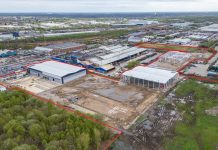Manufacturers’ growth prospects for the rest of 2014 strengthened in April as confidence within the sector rose to a new all-time high, eclipsing optimism levels among services firms, according to the latest Business Trends report by accountants and business advisers BDO LLP in Yorkshire.
In a sign that the economy is rebalancing away from its reliance on the services sector, BDO’s Manufacturing Optimism sub-Index jumped to 120.8, up from 119.4 last month, as growth in the Eurozone helped boost export orders.
The stellar performance among manufacturers has driven the overall Optimism Index up to 104.3, the highest rating ever in the index’s 22 year history. This points towards continued strong business performance in both sectors over the next six months.
Further signs that accelerating growth is being driven by manufacturing are shown by BDO’s Output Index, which predicts short-run growth expectations. It rose by 0.1 to 113.0, driven solely by a lift in the BDO Manufacturing Output sub-Index, which jumped from 112.8 to 113.5 – far above its long-term average of 100.
In comparison, the services sector index, which accounts for over two-thirds of the UK economy, has remained flat since the beginning of the year, albeit at a level which indicates strong growth expectations.
This positive outlook is also translating into jobs growth, as businesses’ hiring intentions showed another large rise in April.
On a more cautionary note, BDO’s Inflation Index moved a point higher over April to reach 98.1, indicating that businesses are preparing themselves for upward pressure on prices. If businesses are correct and inflation does begin to rise, real wage growth could veer back into negative territory from already low levels, dealing a blow to consumer spending ahead of next year’s General Election.
Commenting on the latest findings, Terry Jones, partner and head of BDO LLP in Yorkshire, said: “High growth expectations among manufacturers is a key highlight of this phase of the recovery, with a stronger manufacturing sector set to benefit the region in the long term by rebalancing our economy away from London and the City.
“However, manufacturing is still some way off its pre-crisis peak and confidence in the sector has proved to be volatile in the recent past, impacting negatively on investment and hiring decisions. One current issue is the exchange rate, and the Bank of England has stated that further appreciation in the value of sterling would be unwelcome. It will be interesting to see what the Bank can do to prevent this, although the large current account deficit may prove to be a drag on the pound as we go through the year.
“Another negative for our economy would be an acceleration of the revival of protectionist sentiment. Policymakers’ restrictions on immigration have not helped the labour market. It would be disappointing if there was an equivalent move in industrial policy to protect companies in so-called “strategic” sectors. Open trade creates higher wealth and income and the UK’s tradition in this respect is a fine one.”





















